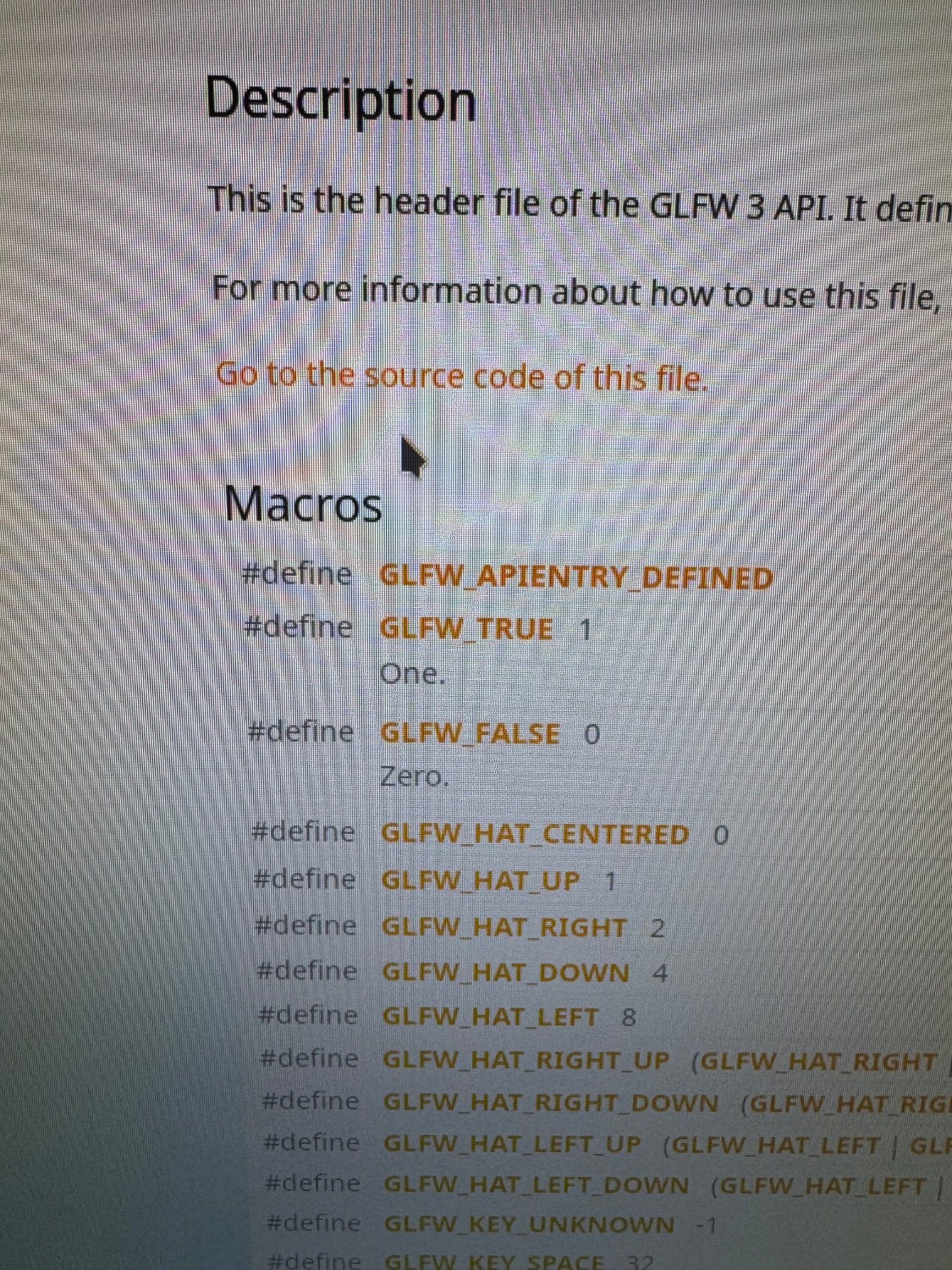this post was submitted on 15 Jan 2025
114 points (93.8% liked)
Programming
17832 readers
140 users here now
Welcome to the main community in programming.dev! Feel free to post anything relating to programming here!
Cross posting is strongly encouraged in the instance. If you feel your post or another person's post makes sense in another community cross post into it.
Hope you enjoy the instance!
Rules
Rules
- Follow the programming.dev instance rules
- Keep content related to programming in some way
- If you're posting long videos try to add in some form of tldr for those who don't want to watch videos
Wormhole
Follow the wormhole through a path of communities !webdev@programming.dev
founded 2 years ago
MODERATORS
you are viewing a single comment's thread
view the rest of the comments
view the rest of the comments


It’s for the extra helpful documentation. You see, in this fantastic example, after the author set GLFW_TRUE to 1, he explained the deep and profound meaning of the value. This exemplifies that the number 1 can also be written as a word: “One”! Some people might be able to figure this out, but the author clearly went above and beyond to make the code accessible to the open source community, encouraging contributions from anyone who’s considering improving the code. Furthermore, this follows the long held tradition of man pages - explaining the nuance of the code, in preparation for telling others to RTFM when they arrogantly ask a question.